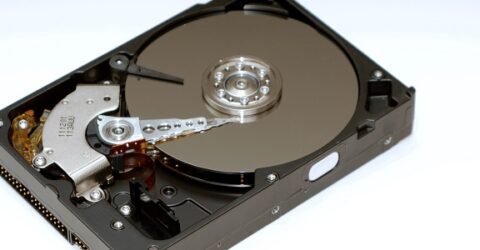Tips for freeing up hard drive space
Freeing up hard drive space helps maintain your computer’s functionality, and it doesn’t require a computing degree

If you’re not technically minded, it’s easy to overlook the significance of computer specifications.
Walk into your local electronics store, and the rows of new desktop and laptop computers may look largely interchangeable.
In reality, there will be significant differences among their key components, not least how they store the binary data all computers rely on to operate.
Whether you’re looking for a Mac or PC, any computer or mobile device (including tablets) will be sold with a finite amount of internal storage space.
Once that space is filled, your machine will stop working properly – a terrifying prospect if concepts like defragging and bulk cloud uploads sound like an alien language.
Here’s what you need to know about hard drive storage, followed by practical advice on freeing up hard drive space…
A lot in store
Computers, tablets and smartphones typically access three forms of storage.
There’s the short-term random access memory (RAM) which enables devices to remember what they’re doing at any given moment.
Then there’s the hard disc drive (HDD) storage which retains files, programs and instructions even when the machine is switched off.
More recently, these two forms of data retention have been joined by cloud storage, where information is uploaded across the internet and stored remotely instead of locally.
(Social media platforms and online games use cloud storage, as do utilities like Google Docs. You can access their contents from any device, because it’s stored on a remote server).
We’ll come back to cloud computing in a moment, but since RAM is only able to manage current processes, HDD storage is the primary method of saving information long-term.
Each HDD contains the software that enables a device to start up and work; the programs that support basic actions like web surfing; and user-generated files such as Word documents.
It’ll have a finite volume of storage, usually measured in gigabytes of data. For instance, this article was written on a Dell laptop with a 512GB HDD.
Of this, only 458GB is actually available to use – the other 54GB is already occupied by the Windows 11 operating system and other essential programming.
It wouldn’t need many 4K movie downloads or storage-intensive gaming titles to consume the vast majority of that space.
As HDD fills up, computers may start to run more slowly and develop more glitches.
You’ll start seeing warning signs about a lack of available storage, requests to free up space and threats that certain functionalities may become less effective – or stop altogether.
Winning the space race
These are some of the steps you can take once freeing up hard drive space becomes necessary.
Always ensure there’s at least 15 per cent of the drive left before you undertake these actions, since a lower percentage might prevent certain actions from happening:






